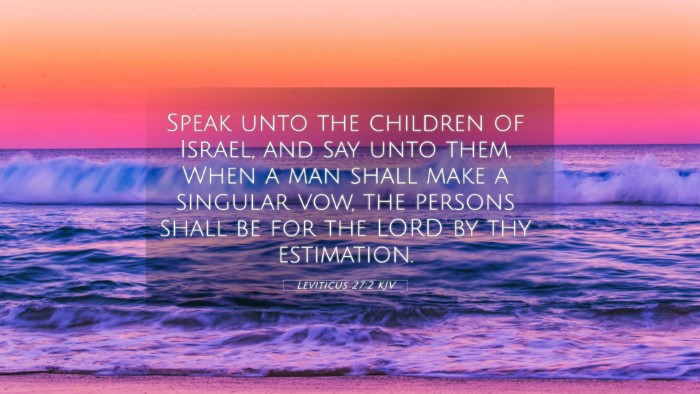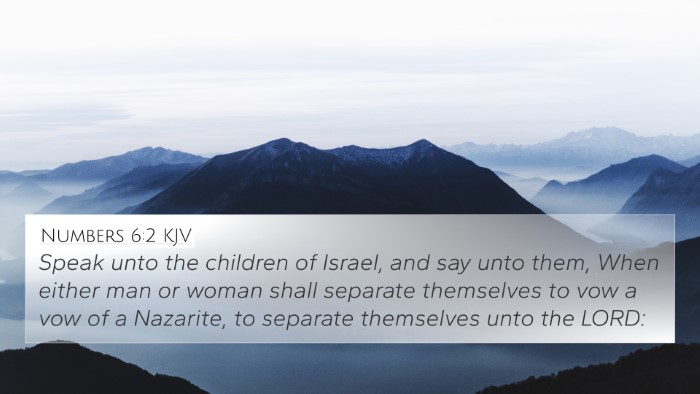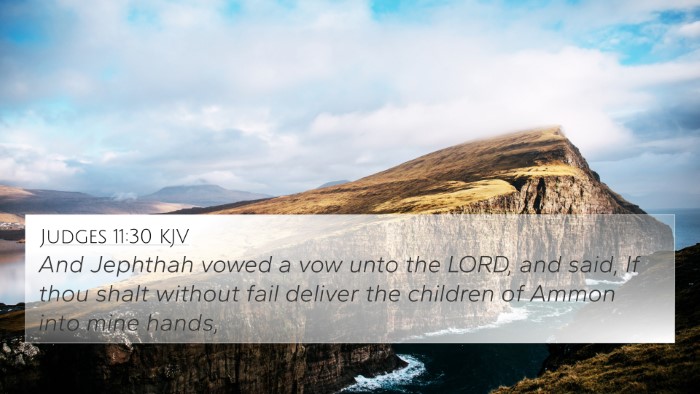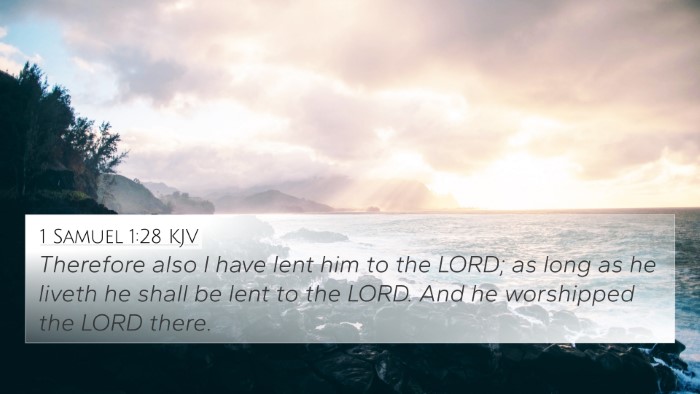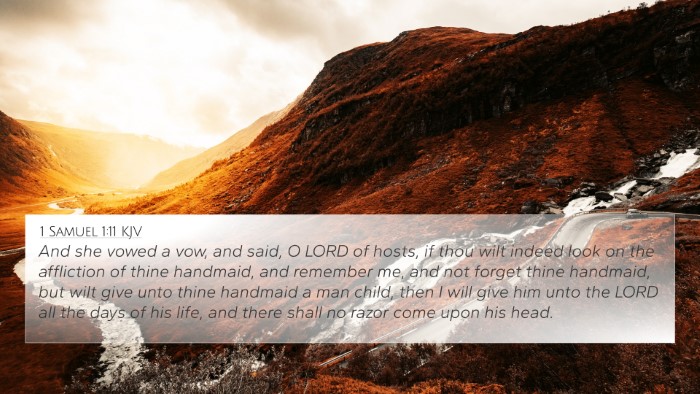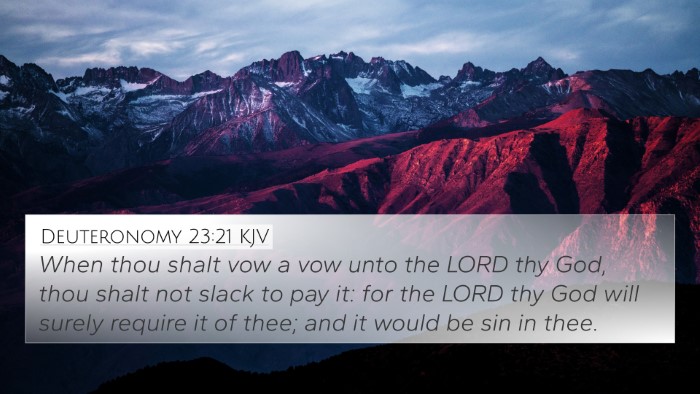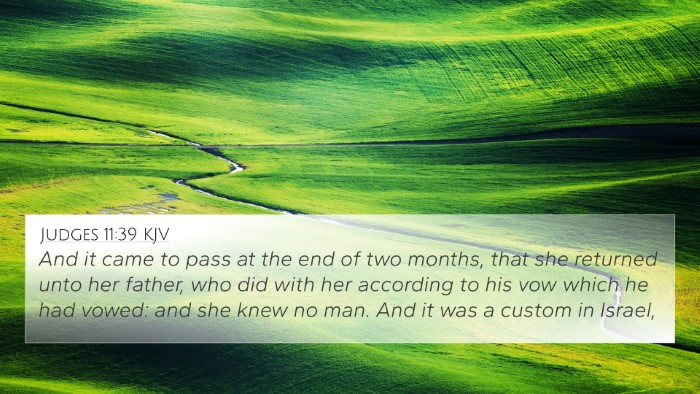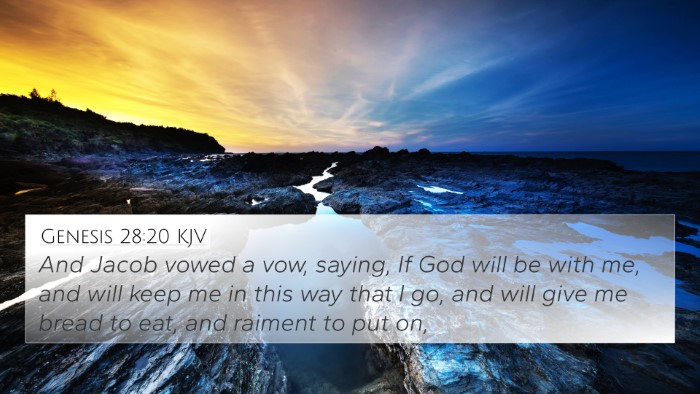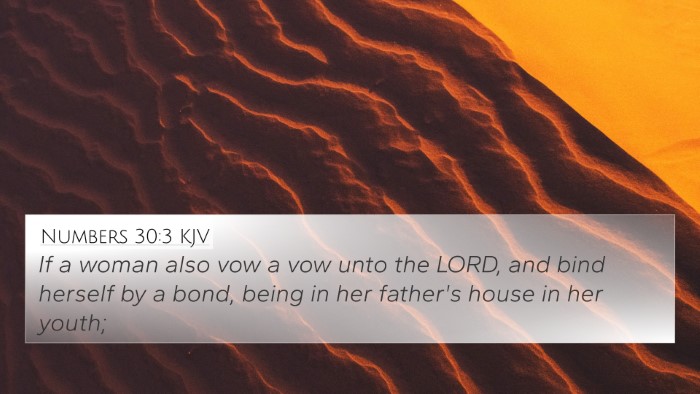Understanding Leviticus 27:2
Bible Verse: "Speak unto the children of Israel, and say unto them, When a man shall make a singular vow, the persons shall be for the Lord by thy estimation."
This verse introduces the practice of making vows in the context of the Israelites' relationship with God. Vows were significant declarations made by individuals that involved dedicating something or someone to God, which carried serious implications within the community.
Verse Meaning and Insights
General Context
In Leviticus, the Lord provides guidelines on how the Israelites were to live in ways that honored Him. Chapter 27 focuses on vows, particularly concerning special dedications made to God. Matthew Henry suggests that this reflects the serious nature of promises made to God, indicating that a vow should not be taken lightly.
Insights from Matthew Henry
- Vows as Personal Dedication: Henry emphasizes that when an individual makes a vow, it signifies a personal commitment to God, highlighting the spiritual maturity required in fulfilling such promises.
- Consequences of Vows: He points out the need to understand that breaking vows is a form of dishonor to God, reiterating the importance of integrity in one's word.
Insights from Albert Barnes
- Value Estimation: Barnes interprets "thy estimation" as referring to a system of evaluating the value of the vowed person, which suggests that vows were not just verbal commitments but had tangible implications on one's life and finances.
- Ritual Significance: He notes that these vows could come with certain sacrificial offerings, thereby creating a ritualistic dimension to the vows made by individuals.
Insights from Adam Clarke
- Voluntary Nature of Vows: Clarke mentions that vows are voluntary acts, which means they arise from an individual's desire to commit to God, contrasting them with obligatory religious practices.
- Spiritual Ramifications: He points out that fulfilling a vow can lead to blessings or further responsibilities within the community of faith.
Connections with Other Bible Verses
Leviticus 27:2 connects with several other passages that reinforce the understanding of vows and their significance in biblical times. Below are notable cross-references:
- Numbers 30:2: Deals with the binding nature of vows, underscoring the seriousness of commitment to God.
- Deuteronomy 23:21-23: Discusses the necessity of fulfilling vows and offers a reminder of the conditions surrounding them.
- Ecclesiastes 5:4-5: Offers a stern warning about making vows to God, emphasizing that it is better not to vow than to vow and not fulfill it.
- Psalm 76:11: Relates to performing vows to God as a way of honoring Him.
- James 5:12: Speaks to the importance of truthfulness in one's word, comparable to the sincerity required when making vows.
- Romans 12:1: Encourages believers to present their bodies as a living sacrifice, echoing the theme of dedicating oneself to God.
- Matthew 5:33-37: Jesus emphasizes the importance of oath-taking, aligning with the original intent of vows and promises.
- 1 Samuel 1:11: Hannah’s vow to the Lord illustrates personal devotion and commitment through promises made.
- Proverbs 20:25: Warns against making rash vows, aligning with the context of making careful evaluations before promising God anything.
- Lamentations 3:41: Connects the act of turning to God in prayer with the acknowledgment of one’s vows.
Thematic Connections
Leviticus 27:2 offers rich thematic connections that can be observed through the lens of the entire biblical narrative. Here are some themes to consider:
- Commitment to God: This verse illustrates the broader theme of dedication present throughout Scripture, where believers are called to commit not only their words but also their lives to the Lord.
- The Nature of Promises: The seriousness of vows in ancient Israel provides a frame of reference for understanding the weight of promises, relevant in both the Old and New Testaments.
- Accountability: The obligation to fulfill vows reflects a key biblical principle of accountability in one’s walk with God.
- Faithful Stewardship: Making an estimation of one's vow ties into the idea of being a good steward of what God has provided, prompting one to consider the implications of their commitments.
Conclusion
Leviticus 27:2 serves as a foundational scripture concerning the nature of vows made by the people of Israel, urging a deep reflection on personal commitments to God and the implications such vows carry. Understanding this verse is enriched through careful cross-referencing with other biblical texts, allowing for a comprehensive grasp of its significance within the larger biblical narrative.
As you study this verse, consider utilizing various tools for Bible cross-referencing to deepen your understanding and explore the connections between different scriptures. Engaging with a Bible concordance or a cross-reference Bible study guide can provide helpful insights as you uncover how this verse interlinks thematically and contextually with other passages.

